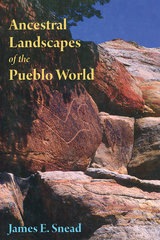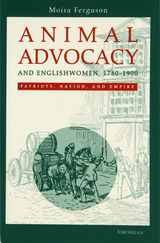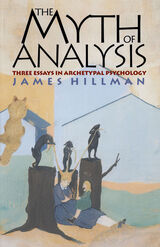
Originally published by Northwestern University Press in 1972, this work had a profound impact on a nation emerging self-aware from the 1960s, as well as on the era's burgeoning feminist movement. It remains a profound critique of therapy and the psychological viewpoint, and it is one of Hillman's most important and enduring works.
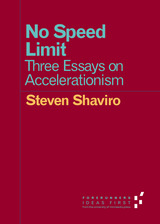
Accelerationism is the bastard offspring of a furtive liaison between Marxism and science fiction. Its basic premise is that the only way out is the way through: to get beyond capitalism, we need to push its technologies to the point where they explode. This may be dubious as a political strategy, but it works as a powerful artistic program.
Other authors have debated the pros and cons of accelerationist politics; No Speed Limit makes the case for an accelerationist aesthetics. Our present moment is illuminated, both for good and for ill, in the cracked mirror of science-fictional futurity.
Forerunners: Ideas First is a thought-in-process series of breakthrough digital publications. Written between fresh ideas and finished books, Forerunners draws on scholarly work initiated in notable blogs, social media, conference plenaries, journal articles, and the synergy of academic exchange. This is gray literature publishing: where intense thinking, change, and speculation take place in scholarship.
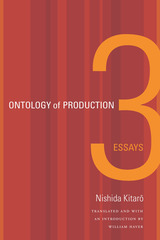
Agreeing with Marx that ontology is production and production is ontology, Nishida in these three essays—"Expressive Activity" (1925), "The Standpoint of Active Intuition" (1935), and "Human Being" (1938)—addresses sense and reason, language and thought, intuition and appropriation, ultimately arguing that in this concept of production, ideality and materiality are neither mutually exclusive nor oppositional but, rather, coimmanent. Nishida's forceful articulation of the radical nature of Marx's theory of production is, Haver contends, particularly timely in today's speculation-driven global economy. Nishida's reading of Marx, which points to the inseparability of immaterial intellectual labor and material manual labor, provokes a reconsideration of Marxism's utility for making sense of—and resisting—the logic of contemporary capitalism.
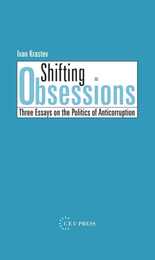


Bartlett Jere Whiting, a pioneer and acknowledged master of the lexicography of proverbs, also wrote three seminal articles on general and theoretical aspects of paremiology, the study of proverbs and related speech forms: “The Origin of the Proverb,” “The Nature of the Proverb,” and “The Study of Proverbs.” On the occasion of his ninetieth birthday, friends, students, and colleagues from the Harvard English Department, Whiting’s academic home for nearly fifty years, offer these essential readings to a new generation of scholars and enthusiasts of “the wisdom of many, the wit of one.”
Whiting’s essays are accompanied by an annotated bibliography of his works on the proverb by the best-known contemporary student of the subject, Wolfgang Mieder; and introductory essays by Joseph Harris and Wolfgang Mieder and by Susan E. Deskis place Whiting in the history of international proverb study.
READERS
Browse our collection.
PUBLISHERS
See BiblioVault's publisher services.
STUDENT SERVICES
Files for college accessibility offices.
UChicago Accessibility Resources
home | accessibility | search | about | contact us
BiblioVault ® 2001 - 2025
The University of Chicago Press



